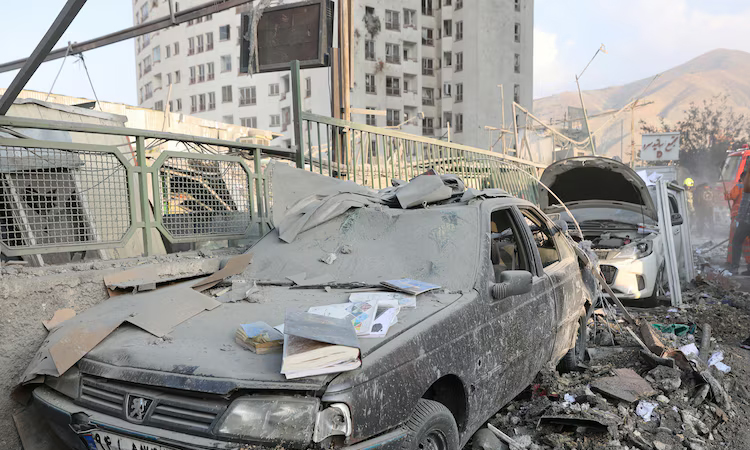News Flash
News Flash

JERUSALEM, June 13, 2025 (BSS/AFP) - Israel on Friday carried out dozens of
airstrikes in Iran, hitting nuclear and military sites and killing several
commanders and nuclear scientists.
Iran immediately responded by launching drones against Israel, and called the
Israeli attack "a declaration of war".
US President Donald Trump -- although saying his country was not involved --
warned Iran there will be more "death and destruction".
International calls for restraint are multiplying, as fears grow the Middle
East could be on the threshold of a broader conflict.
Here is what we know:
- What was hit? -
The attacks started in the early hours of Friday -- a day of rest and prayer
in Iran.
Israel hit a key underground nuclear site in Natanz several times, Iranian
state television said, reporting that most damage was at "surface level".
Other key nuclear sites at Fordow and Isfahan were not immediately struck,
said the UN nuclear watchdog, the International Atomic Energy Agency, citing
Iranian authorities.
Additional strikes were reported against sites in Iran's northwest.
The head of Iran's Revolutionary Guards, Hossein Salami, and the chief of
staff of its armed forces, Mohammad Bagheri, were killed, with replacements
swiftly named by supreme leader Ali Khamenei.
The Revolutionary Guards said that its aerospace commander, Amirali
Hajizadeh, was also killed. He was in charge of Iran's ballistic missile
forces.
Iranian media said several nuclear scientists were killed.
Iran said 95 people were wounded.
State television said senior Khamenei adviser Ali Shamkhani was hurt in one
of the strikes.
The Israeli raids will "continue as many days as it takes", Israeli Prime
Minister Benjamin Netanyahu said.
- Iran's response? -
Iran launched some 100 drones in retaliation, according to the Israeli
military, which said "most" were intercepted outside Israeli territory.
The bigger concern is Iran's sizeable arsenal of ballistic missiles.
Khamenei warned Israel faces a "bitter and painful" fate over the attacks.
Iran's foreign minister called the Israeli attacks "a declaration of war" and
urged UN Security Council action.
Iran had previously warned it would hit US military bases in the Middle East
if conflict occurred. The United States pulled out non-essential personnel
from several sites days ahead of the Israeli attack.
Internet restrictions were imposed across Iran, the country's communications
ministry said, adding they would be lifted "once normalcy returns".
- US involvement? -
Trump said Israel warned him of its raids ahead of time, but insisted the
United States was not involved.
He warned Iran that the "next planned attacks" will be "even more brutal" and
said Tehran should cut a deal to roll back its nuclear programme "before
there is nothing left".
The US leader has repeatedly said he will not allow Iran to develop nuclear
weapons.
Tehran has long denied seeking atomic bombs, but had been enriching uranium
to a level very close to be able to make them.
The United States and Iran had been holding talks on the issue. The next
round, scheduled for Sunday in Oman, now looked to be cancelled.
Israel, Trump said, has a huge military arsenal thanks to the United States
and "they know how to use it".
Trump's secretary of state, Marco Rubio, said the United States would protect
its forces in the Middle East.
"Let me be clear: Iran should not target US interests or personnel," Rubio
said.
- Reactions -
The attack, and likely Iranian response, is fuelling international alarm.
Many capitals were urging restraint, fearing the consequences if the Israel-
Iran conflict widened and drew in the United States, and if Middle East oil
production and shipments were impacted.
Oil prices leapt dramatically on Friday, trading sharply up to around $75 a
barrel.
The leaders of France, Germany and Britain were to hold a call to discuss the
Israeli strikes, Berlin said.
Several airlines cancelled flights servicing the region, including Emirates,
Qatar Airways, Air France and Lufthansa.
Syria closed its airspace.
In Tehran, lines of motorists formed at service stations for fuel, residents
stocked up on supplies, and protests were held against the Israeli
airstrikes.